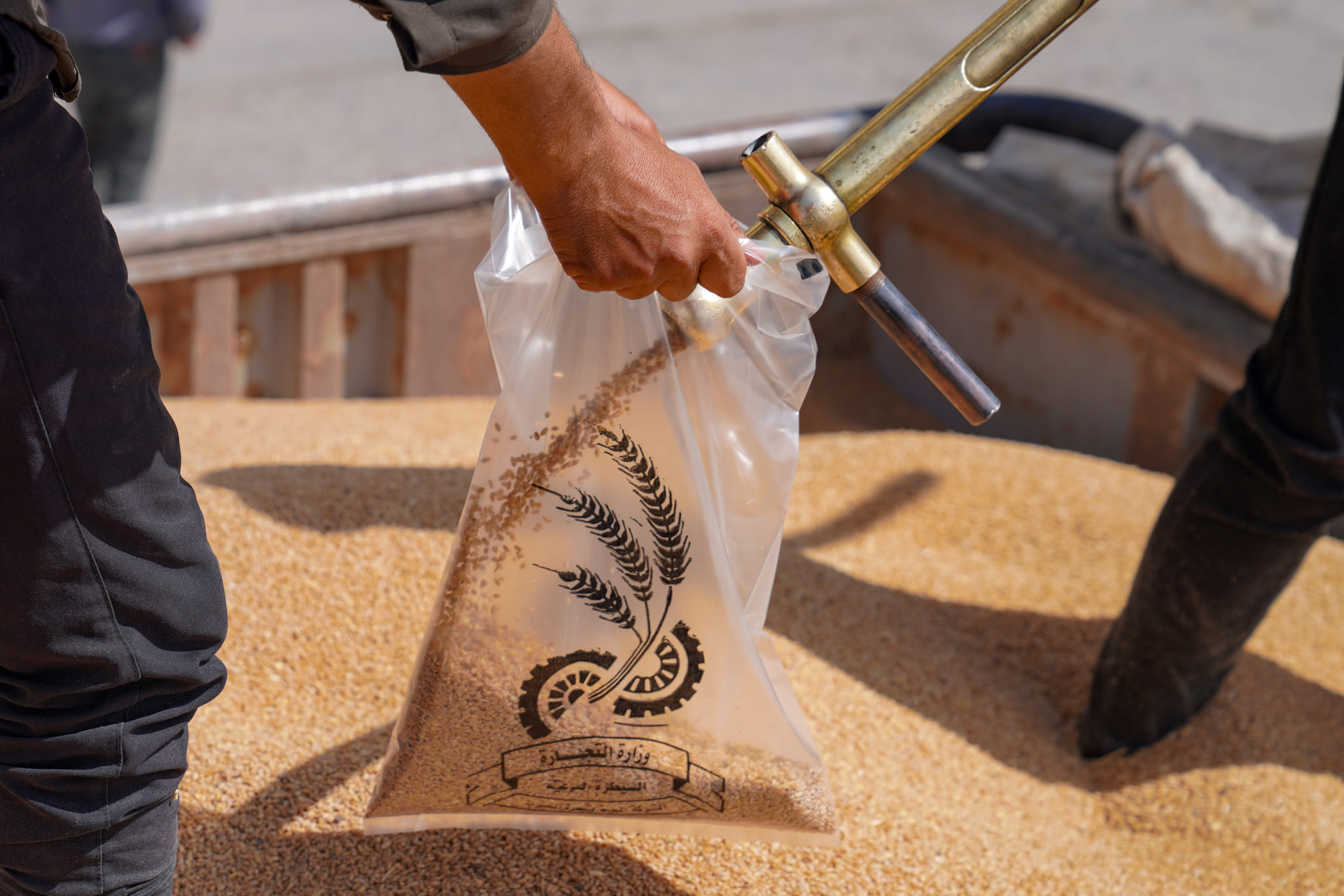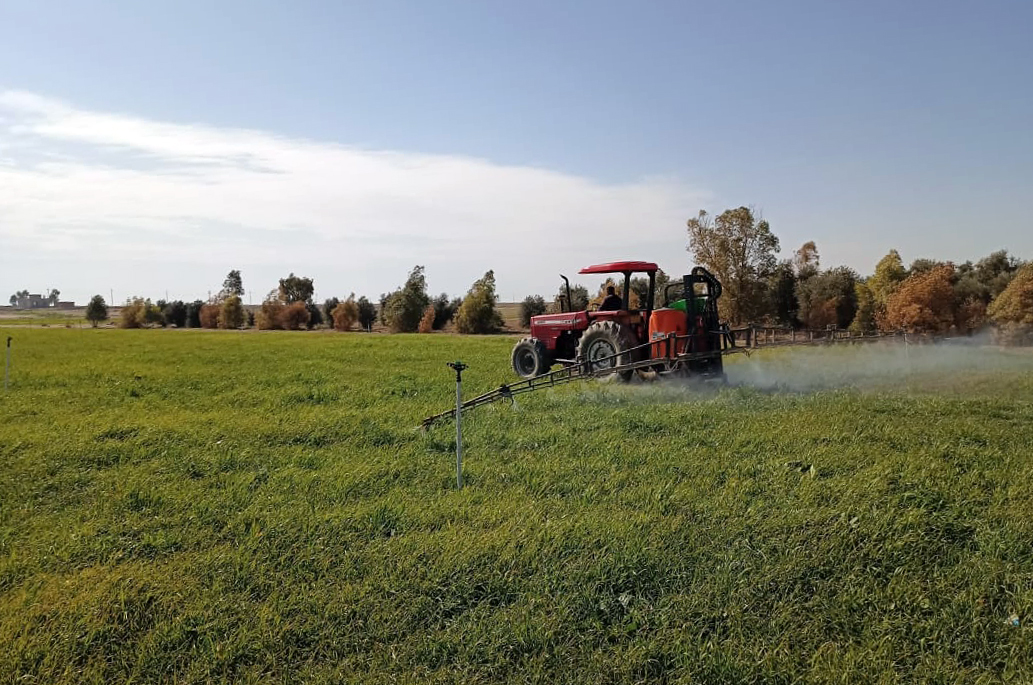Farmers in Nineveh province are already concerned about selling their produce because much of their land has not been included in the 2025 agricultural plan, leading to them being deprived of state-subsidized purchase and support.
About 2.1 million acres (200,000 hectares) of land in Nineveh province have not been included in the new agricultural plan, citing farmers' contracts not being renewed and other problems related to land ownership.
Abdulwahid Sulaiman, a farmer who owns land in the village of Omeria in al-Qush sub-district, shared his experience of having half of his land excluded from the agricultural plan. He produces wheat annually on an area of 2,000 acres, with 1,000 acres registered under his name and the other 1,000 acres he has power of attorney POA by the owner.
Any land not included in the Federal Government's agricultural plan will be deprived of assistance such as state-subsidized seeds, fertilizers, pesticides, and other materials and supplies.
Sulaiman told KirkukNow that the government requires them to renew their contracts every year, which involves a lot of routine and fees.
In al-Qush, 100,000 donums were cultivated annually, but only 25,000 donums are planned for this year.
The land that has not been included in the agricultural plan is located in Sheikhan, Telkif, Hamdaniyah, Shingal (Sinjar), Hadhar, Ba'aj, Makhmur, al-Qush, Faida, Wana, Rabia, Zumar, and some other areas.
"In Al-Qush alone, 100,000 donums were cultivated annually, but this year only 25,000 donums are planned by the ministry," Siryan Safar, director of the planting department in al-Qush, told KirkukNow. Previously, about five million acres were planned, but this year it has been reduced to less than two million.
The Iraqi government's excuse, according to Safar, is twofold: “first is the requirement to renew agricultural leases or contracts annually, and the second is that everyone who owns land in their own name must register themselves, while many landowners are abroad and rent their land annually.”
“Another problem is that during the fight against Daesh (ISIS), many of the original land documents have been lost, stolen, or altered, so the government has stopped the transfer of property,” Safar added.

By 2024, only four out of nine million donums of wheat and barley were planted in Nineveh province according to agricultural practices.
Wheat production in Nineveh alone was more than 1.393 million tons on an area of more than 3.5 million donums. According to the Central Statistical Board, in 2023 the area planted with wheat and barley was over five million donums.
Kavin Sheikh Saeed, a member of the Iraqi parliament from Nineveh, told KirkukNow that the Iraqi government has not included 2.141 million donums of land in the plan, on the grounds that the owners of the land must bring original documents.
“Most of them have no official documents since they have inherited it from fourth or fifth ancestors.”
He warned that if they sought ownership of agricultural land, there would be "big problems" among the communities of Nineveh.”
Part of Nineveh province is a disputed area under Article 140 of the Iraqi constitution and has disputes over the ownership of large areas of agricultural land, like many other areas.
The government's excuse is that landowners must bring original documents
"Every year the Iraqi government does not implement the requirements of documents in the areas of Article 140 and Nineveh, but now they demand it," he added.
A committee has been formed in the Ministry of Agriculture to investigate the problems of farmers and agricultural land in Nineveh since September 2024, but without results.
Although his land is not in the agricultural plan, Sulaiman does not give up planting and wants to produce wheat, which is his only occupation and source of livelihood.
"If the government does not take our products, we will be forced to sell in the market.
Nineveh Province is considered to be a rich agricultural area, according to the Central Statistics Agency, 40 percent of the population live in rural areas and is expected to be the first wheat production in Iraq as in previous years.
The Iraqi Council of Ministers decided in mid-October 2024 to pay farmers 800,000 to of 850,000 Iraqi dinars IQD per ton of wheat, but the land outside the agricultural plan will receive their products at the market price, which ranges between 450,000 to 650,000 dinars per ton.
“Last year, I delivered 60 to 70 tons of wheat to the Fayda silo at 850,000 dinars per ton but this year they will not receive one kilogram per the annual plan,” Sulaiman desperately said.





